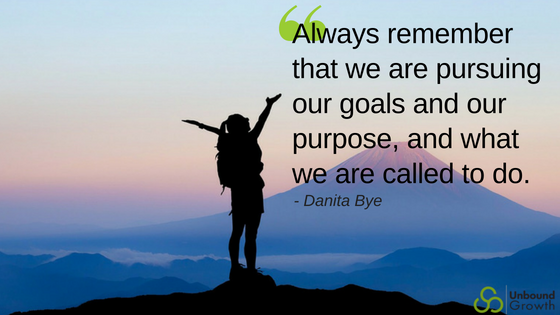
We were joined by none other than Danita Bye for a recent #livesaleslab where she shared some key insights from her book "Millennials Matter: Proven Strategies to Build Your Next-Gen Leader".
We have all had mentors that have made an impact on our lives. We've also had some bad managers who have perhaps taught as well (what not to do!). Check out the video below to hear what the difference is between a mentor and a coach, three things to look for in a mentor, ideas on where to look for one, and a few ways you can build your own mentor support group.

Carole Mahoney: One of the first questions I think we should address, Danita, is the difference between mentoring and coaching.
Danita Bye: Well, there's lots of formal differences between coaching and mentoring. How I see it is coaching is typically very specific. We have a key skill, a key mindset, a key situation that we're working on, so it's very specific. Mentoring can typically be longer-term. In our group today, someone said it might be more career-oriented. But, I see it as being a more emotional connection than as being task.
Carole Mahoney: A mentor is more long-term, coaching more short-term, specific, and task- and skill-oriented. So moving then, to the mentor side of things, what makes a good mentor?
Danita Bye: Well, during our time, I talked about one of my mentors, which actually was a coach. It was my first sales manager at Xerox Corporation. Some of the characteristics that he demonstrated are the same that I find in a good mentor.
One, is they're willing to take the time to listen, and to really listen and they really care about you and who you are. So that's one.
Next, is that they're encouraging. When I felt like throwing in the towel at Xerox, when I was ready to completely leave sales, Bob was the one who would come along and encourage me. Then after he listened and encouraged me, he would kick me in the butt and say, "Get out and do it." There's that additional element of challenge and not only the challenge, but the accountability that goes with it.
Carole Mahoney: We all need a Bob, right? So, where are some of the places to go and look for mentors? We had a couple of examples in the Sales Lab. What would you recommend for someone who's looking for a mentor?
Danita Bye: One of the issues that was raised in the Sales Lab is sometimes the formal mentoring programs feel stiff and contrived, and it may be as part of the company that you're with that you need to participate in those. Great. And, as professionals, we really need to develop our own coaching, mentoring, and learning program. Ultimately, that's our responsibility.
So, there's a couple of places. There could be industry associations, where you're looking to find people who might be your right match with what you're dealing with now as well as what your career goals are. There could be books. I think books, podcasts, audios, all of that can be part of our creating a coaching and mentoring support system.
Carole Mahoney: I love that, the idea that books can be mentors. We were actually talking about that, and the first book that I thought of that was my first book mentor was Waiting for Your Cat to Bark by Brian Eisenberg. It really was the thing that formed my foundation of being buyer-focused first and foremost, because that's what we're all here for. I love that books can be mentors thing. So, I'm going to have more and more shelves of mentors.
You mentioned your manager, Bob, too. How can we also learn from bad managers? Because I know that I've had bad managers and supervisors, and learned what not to do. So, how do you manage that?
Danita Bye: Well, when I talk to people who have bad managers, one of the things that I'll say is, "This is a great opportunity for you to write your own book, because you know what not to do." Keep track of that so that as you're moving into leadership and management, that you know what not to do. That's kind of one fun idea. Always remember that we are pursuing our goals and our purpose, and what we are called to do. So, we take every situation and align it with that purpose.
Carole Mahoney: And one of the things that came that was interesting as we were talking about this is that there's the person-to-person mentoring relationship, there's the book-to-person mentoring relationship, but then there's all the inner sort of mentoringship that we have to do in reflecting and becoming self-aware. As you know and as I've found with clients, too, a lot of times that very first step in moving in anything and mentoring coaches becoming more self-aware and taking that first step. I like the whole idea of the different ways that you can get mentoring and build that support network.
Danita Bye: Yes, absolutely.
Carole Mahoney: Thank you for joining us today. If you all have not picked her book yet, then please do so, because it's one that you should ... I joked with someone, "Give this to every single boss that you have in your company."
We want to hear your mentorship stories!
Give a shout-out to a mentor who has made an impact on your life, or as a mentor, share some of the rewards of mentoring others in the comments section below.
Want to learn more? Click below to check out the recap videos from past Live Sales Labs.







